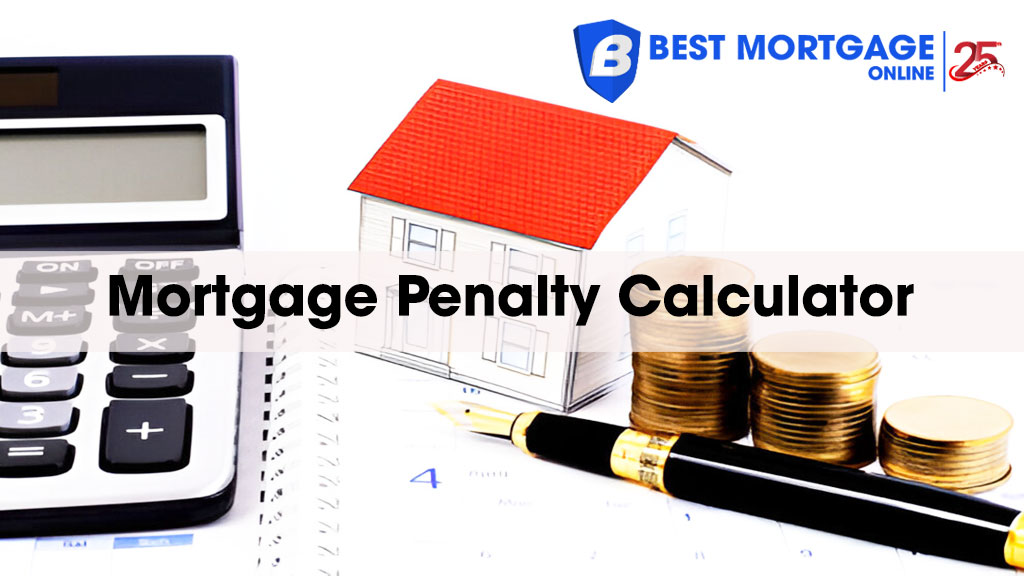Owning a home is an exciting milestone for many Canadians. However, along with the keys to your new property comes a mortgage you’ll pay off over the decades.
While having a mortgage allows you to buy your home, it also means being saddled with debt for much of your adult life. Canada’s major lenders offer various mortgage payment options to help you pay off your home faster and potentially save thousands in interest costs over the life of your loan.
Canadian Mortgage Payment Calculator
Calculate your mortgage payments with Canadian lending standards and CMHC insurance.
What’s included in your mortgage payment in Canada?
Your mortgage payment is made up of two main components:
- Principal – This refers to the original loan amount you borrowed from the lender to purchase your home. When you make mortgage payments, a portion goes toward paying back this principal balance.
- Interest – Interest is the cost you pay to borrow the money for your home. Your mortgage interest rate determines how much interest is charged monthly on the outstanding principal balance.
Your lender will calculate your monthly payment amount based on the mortgage details, including:
- Down payment
- Mortgage term
- Amortization period
- Mortgage rate
- Payment frequency
- Property taxes
In the early years of your mortgage, a large portion of your payment goes toward interest costs. But as you pay the principal, more of your payment is applied directly to the principal balance.
The later parts on this article will detail the common payment frequencies offer by most Canadian lenders.
What are the different mortgage payment options in Canada?

Canada’s most popular payment frequencies are monthly, bi-weekly, and accelerated bi-weekly. Most lenders give homeowners a choice of how often to make mortgage payments.
Monthly payments
A monthly payment plan is the standard option offered with most mortgages. You make your mortgage payment once per month on the same date, for a total of 12 payments per year.
Monthly payments are the easiest repayment structure to budget for, requiring less transaction management. However, this schedule will take the full amortization period to pay off your mortgage, resulting in higher total interest costs.
Semi-monthly payments
As the name suggests, these payments are made twice per month. To get the semi-monthly amount, you divide your monthly mortgage payment by two.
You will still make the equivalent of 12 monthly payments over the full year. However, some borrowers like aligning payments with bi-monthly pay periods.
Weekly payments
Weekly payments are made once weekly, equating to 52 payments per year. Calculate this by multiplying your monthly payment amount by 12 months and dividing by 52.
Biweekly payments
Biweekly payments are made every two weeks. To find the biweekly amount, take your monthly payment, multiply it by 12 months and divide by 26. The total amount paid is the same annually but split into 26 payments instead of 12, making budgeting easier for biweekly payers.
Accelerated biweekly payments
This schedule involves making 26 biweekly payments. However, instead of just dividing the monthly amount into 26 even payments, you calculate accelerated biweekly payments differently:
- Divide the monthly payment by two
- Pay that amount biweekly
By paying 26 of these slightly higher biweekly amounts, you make the equivalent of one extra monthly mortgage payment per year, which can shave years off your amortization period.
Accelerated weekly payments
Similarly, accelerated weekly payments allow you to pay 52 weekly payments that add up to one extra monthly payment per year. To calculate, divide your monthly payment by four and pay that weekly.
As with accelerated biweekly, this structure helps you pay your mortgage much faster and save on interest. Speak with your lender to set up accelerated payments.
Example: Weekly vs. Accelerated Weekly
Let’s assume a mortgage with the following details:
- Mortgage Amount: $300,000
- Interest Rate: 3%
- Amortization Period: 25 years
To calculate the regular weekly payment amount:
- Monthly payment: $1,264
- Multiply by 12 months = $15,168 total annual payment
- Divide by 52 weeks = $292 weekly payment
Over the full 25 years, you would make 52 regular payments of $292 each year, totalling $15,168 per year.
To calculate the accelerated weekly payment amount:
- Monthly payment: $1,264
- Divide by 4 = $316 accelerated weekly payment amount
By paying $316 each week over 52 weeks, you would pay $16,432 annually.
This is equivalent to an extra $1,264 monthly payment per year compared to the regular weekly payments.
In this example, accelerated weekly payments allow you to pay off your mortgage three years sooner and save $23,000 in interest compared to regular weekly payments.
When Are Mortgage Payments Due?
Most lenders allow you to select the day of the month on which you want to make your regular mortgage payments. This date is set when you finalize your mortgage details and set up automatic bank withdrawals.
3 tips for selecting the ideal payment date include:
- Time payments with your paycheck – Having your mortgage payment withdrawn right after your paycheck is deposited makes it easier to manage cash flow.
- Avoid end-of-month due dates – If your payment is due at the end of the month, you risk occasionally having two mortgage payments in one calendar month, depending on weekends and holidays.
- Pick a consistent date – Sticking with a set date, like the 15th, avoids confusion compared to picking a variable date that changes monthly.
If needed, you can request that your lender change your payment date. Most will accommodate reasonable requests, especially if tied to a change in your pay schedule.
How to Choose the Right Mortgage Payment Options?
Here are 6 tips for choosing paydown tactics that align with your goals and budget:
- Crunch the numbers – Use a mortgage calculator or amortization table to see the monetary impact (interest savings, years shaved off) for different options
- Understand your cash flow – Will extra payments now require cutting back elsewhere? Or can you redirect funds without impacting your lifestyle?
- Consider your timeline – If you want to pay off your mortgage before retirement, aggressive strategies make sense. A longer horizon provides flexibility.
- Review prepayment terms – Carefully confirm lump sum rules and fee implications before sending extra payments.
- Automate where possible – Set up automatic weekly or biweekly payments and annual lump sum transfers so extra payments happen effortlessly.
- Revisit at renewal – Reassess your financial situation and adjust payment schedules and amounts at each mortgage renewal.
FAQs on Mortgage Payment Options in Canada
Why should I choose accelerated mortgage payments?
Accelerated weekly or biweekly mortgage payments let you pay an extra payment yearly, reducing the amortization timeline, interest costs, and years until the mortgage payoff.
When should I make extra mortgage payments?
Making extra lump sum or increased payments early in your mortgage term saves more on interest. Paying extra principal down faster in the first 5-10 years provides the biggest payoff.
Do all Canadian lenders offer accelerated mortgage payments?
Most major lenders offer accelerated weekly or biweekly payments, but smaller credit unions or monoline lenders may not. Check with your lender regarding availability.
Can I make lump sum mortgage payments in Canada without a penalty?
Most lenders allow prescheduled annual lump sum payments of up to 15% of the original principal. Extra amounts may incur prepayment charges. Read your mortgage terms.
Is paying my mortgage faster or investing extra funds better?
It depends on your risk tolerance, time horizon, and mortgage interest rate compared to expected investment returns. Weigh paying down debt faster now versus disciplined investing for longer timeframes.
Do credit unions offer accelerated mortgage payments?
Most large credit unions allow accelerated weekly or biweekly mortgage payments. Check with your specific credit union.
Can variable rate mortgages have accelerated payments?
Yes, most lenders allow accelerated payment frequencies for variable-rate mortgages. However, some lenders compound interest more frequently.
The bottom line
If being mortgage-free and owning your home outright sounds attractive, examine your budget and cash flow to see where you could direct extra payments. Even minor changes like automating an additional biweekly payment or adding $50 to your monthly amount can make a surprising dent in your amortization timeline and total interest costs.
To explore your mortgage payment options and prepayment privileges, speak with one of our mortgage advisors at Best Mortgage Online. The sooner you start paying down your mortgage, the more interest you’ll save, and the quicker you’ll enjoy being mortgage-free!




